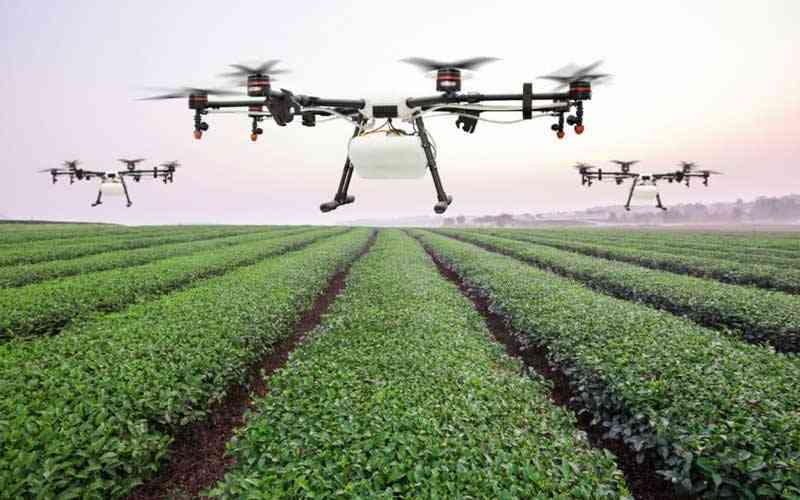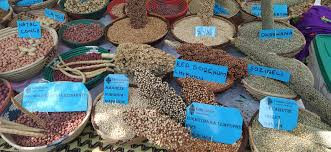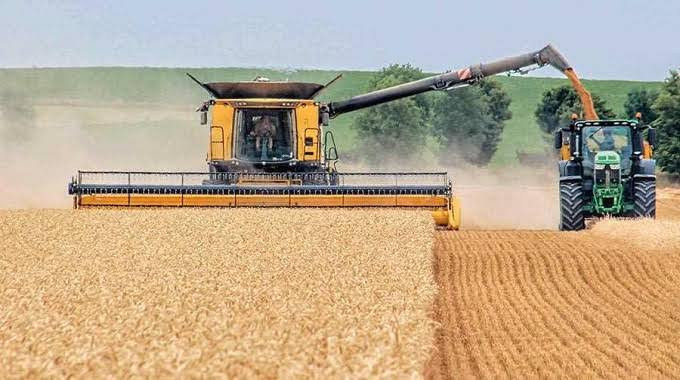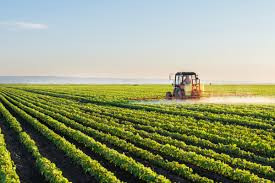
ZIMBABWE should emulate countries like India and Israel in using technology to boost agricultural productivity, a leading economic advisory firm has said.
Zimbabwe has significant arable land and favourable weather conditions.
But the country has been struggling to attain food self-sufficiency due to lack of modern equipment, poor farming methods, recurring droughts and lack of financing.
However, Global Renaissance Investments (GRI) chief executive officer Ngoni Dzirutwe believes the adoption of smart farming technologies will help contractors to improve efficiency and monitor farmers, leading to production of high quality and quantity of crops.
Smart farming technologies that assist contractors in achieving efficiency and monitoring farmers are drones, sensors, mobile networks, robots, self-propelled forage harvests, automotive tractors and GPS trackers.
“Farms and agricultural operations need to be run very differently, primarily due to advancements in technology such as sensors, devices, machines, and information technology. Some countries such as India and Israel are already using sophisticated technologies such as robots, temperature and moisture sensors, aerial images, and GPS technology. These advanced devices and precision agriculture and robotic systems allow farms to be more profitable, efficient, safe, and environmentally friendly,” he said.
In Zimbabwe, the agricultural economy is divided between highly-developed commercial farmers and those that practise subsistence farming, with a fair amount of technology already being used successfully within the commercial farming sector.
However, the implementation of farming and agriculture technology has the potential to help farmers and growers regardless of the scale and nature of their operations.
- Advisory firm pushes for tech-driven agric to boost food security
- Econet, EcoCash seek to raise US$60m to redeem debentures
- Zim firms scout for business opportunities in China
- Realising ‘smart cities’ concept, a collaborative effort: Expert
Keep Reading
Dzirutwe noted that mobile technology is playing an important role in monitoring and controlling crop irrigation systems.
“With this modern technology, a farmer can control his irrigation systems from a phone or computer instead of driving to each field,” he said, adding that moisture sensors in the ground are able to communicate information about the level of moisture at certain depths in the soil.
He also noted that the use of crop sensors help farmers to apply fertilisers in a very effective manner, maximising uptake.
“Crop sensors sense how your crop is feeling and reduce potential leaching and runoff into groundwater. Instead of making a prescription fertiliser map for a field before you go out to apply it, crop sensors tell application equipment how much to apply in real time.
“Optical sensors are able to see how much fertiliser a plant may need, based on the amount of light reflected back to the sensor,” said Dzirutwe.
The world over, drones are being used to assess crop health, predict yields, spray plants, count plants, measure moisture and plant seeds.
This in return reduces costs and time spent on the process. If drones are used to spray crops it limits human contact with fertilisers, pesticides and other harmful chemicals. Drones are also faster and efficient than vehicles and airplanes.











